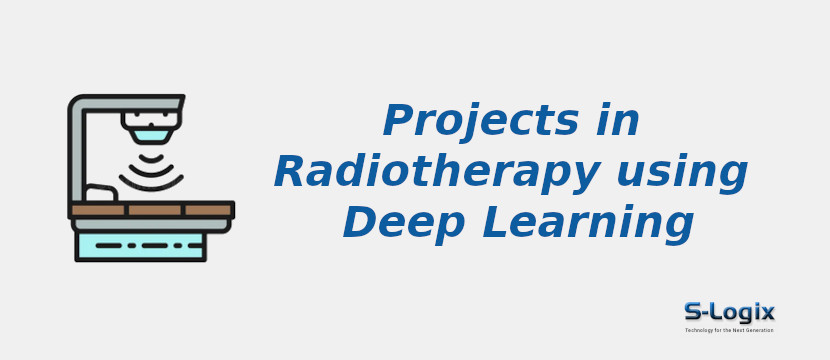Project Background:
In Radiotherapy, advancements in deep learning have emerged as a promising avenue for enhancing treatment efficacy and precision. The project work in this domain typically involves leveraging deep learning techniques to address various radiotherapy treatment planning, delivery, and outcome prediction challenges. These challenges may include accurately delineating tumor boundaries from medical imaging data, optimizing treatment plans to minimize damage to healthy tissues while maximizing tumor coverage, and predicting patient responses to different treatment regimens. By harnessing the power of deep learning algorithms, which excel at learning complex patterns from large datasets, researchers aim to develop innovative solutions that improve the overall quality of care for cancer patients undergoing Radiotherapy. This fusion of medical science with cutting-edge technology represents a pivotal step towards personalized and optimized cancer treatment strategies.
Problem Statement
- Current methods for outlining tumor boundaries in medical images are inconsistent and time-consuming.
- Manual treatment planning often fails to effectively balance tumor coverage with sparing healthy tissues.
- Existing methods cannot dynamically adjust treatment plans based on real-time changes in patient anatomy and tumor characteristics.
- Predicting treatment outcomes and potential side effects for individual patients remains challenging due to the complexity of cancer biology and treatment response.
- Ensuring the accuracy and safety of radiotherapy delivery requires labor-intensive manual checks, leaving room for errors.
Aim and Objectives
- To enhance the efficacy and precision of Radiotherapy by applying deep learning techniques.
- Develop deep learning algorithms for accurate and automated tumor delineation in medical images.
- Utilize deep learning to optimize treatment planning, balancing tumor coverage with healthy tissue sparing.
- Implement real-time adaptive radiotherapy algorithms to adjust treatment plans based on dynamic changes in patient anatomy and tumor characteristics.
- Create predictive models using deep learning to forecast treatment outcomes and potential side effects for individual patients.
- Establish automated quality assurance methods using deep learning to ensure the accuracy and safety of radiotherapy delivery.
Contributions to Radiotherapy using Deep Learning
- Enhances tumor delineation accuracy in medical images, leading to more precise treatment planning.
- Enables personalized treatment plans tailored to individual patient anatomy and tumor characteristics, improving therapeutic outcomes.
- Facilitates real-time adjustments to treatment plans, optimizing dose delivery based on evolving patient conditions.
- Predict treatment outcomes and potential side effects, aiding clinicians in decision-making and patient counseling.
- Automating quality assurance processes using deep learning ensures the safety and reliability of radiotherapy delivery, minimizing errors and improving patient care.
Deep Learning Algorithms for Radiotherapy
- U-Net
-
Convolutional Neural Networks (CNN)
-
Generative Adversarial Networks (GANs)
-
Residual Networks (ResNet)
-
Recurrent Neural Networks (RNN)
-
Variational Autoencoders (VAEs)
-
Attention Mechanisms
-
Graph Neural Networks (GNNs)
Datasets for Radiotherapy using Deep Learning
- AAPM TG-119
-
AAPM TG-211
-
AAPM TG-263
-
CERR
-
RIDER Lung CT
-
NSCLC Radiogenomics
-
RIDER Head-Neck CT
-
CQ500
-
LIDC-IDRI
-
PROSTATEx
Software Tools and Technologies
Operating System: Ubuntu 18.04 LTS 64bit / Windows 10
Development Tools: Anaconda3, Spyder 5.0, Jupyter Notebook
Language Version: Python 3.9
Python Libraries:
1.Python ML Libraries:
- Scikit-Learn
- Numpy
- Pandas
- Matplotlib
- Seaborn
- Docker
- MLflow
2.Deep Learning Frameworks:
- Keras
- TensorFlow
- PyTorch
